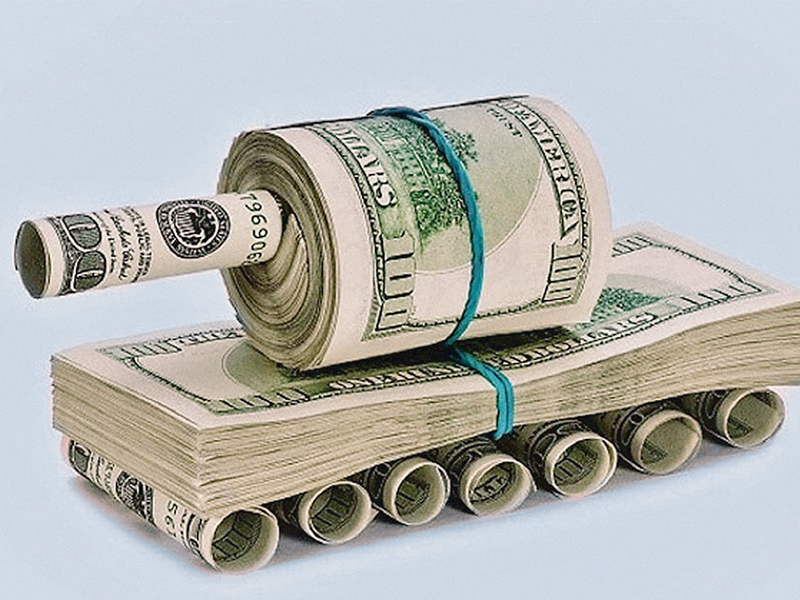In today's world, the business of war has evolved in conspiratorial and alarming ways. Wars of the past used to be driven by geopolitical, ideological or territorial reasons, but today, there is a new and very worrying motivation: the financial enrichment of arms producers. The figures and statistics surrounding wars demonstrate the scope of this lucrative business, which raises political and ethical questions that must be addressed with absolute transparency.
According to the Stockholm International Peace Studies Institute (SIPRI), in the last decade, global military spending has increased significantly. In 2022, global military spending is estimated to reach $2.06 trillion, an increase of 4.1% compared to the previous year. This level of investment in weapons is shocking, especially when one considers that it could be used for more constructive purposes, such as investment in education, health or sustainable development.
War has become a highly profitable business for large arms manufacturing companies. According to the same Institute, sales of the world's top 100 arms companies reached $592 billion in 2021, an increase of 2% compared to the previous year. These figures reveal a worrying reality: the more conflicts there are, the more weapons are sold and the more money is generated for arms producers.
Furthermore, it is important to note that the nature of current disputes has changed. In the past, wars were usually clashes between nations or alliances of nations. However, today, many conflicts are internal, characterized by guerrillas, militias and terrorist groups. These groups, often financed by arms trafficking, perpetuate these confrontations with the aim of obtaining economic and political benefits.
The connection between the arms industry and these struggles becomes even more evident when analyzing the flow of weapons globally. According to the SIPRI Arms Trade Report, the top five arms exporters in the period 2016-2020 were: the United States, Russia, France, Germany and China. These countries are also some of the largest arms producers in the world. This interconnection raises questions about the economic and geopolitical interests that can influence decision-making when engaging in wars or selling weapons to nations in confrontation.
It is essential that the world reflects on the business of war and its political and ethical implications. Enrichment through conflict not only perpetuates violence and human suffering, but also diverts resources that could be used to build a more peaceful and just world. It is the responsibility of political leaders and the international community to address this problem and seek alternatives that promote peace and sustainable development. But, more importantly, on our part, civil society, through our vote, not supporting those responsible who promote arms production.
The business of war has evolved and has become a source of financial enrichment for arms producers. Figures and statistics reveal an alarming increase in global military spending and arms sales. It is time to question the economic interests that drive conflicts and seek solutions that prioritize the peace and well-being of humanity. Wars are a “bloody” monologue, which in the end vindicates almost no one, only the powerful owners of weapons who rub their hands while the balance of their bank accounts rises like foam. In war there are only losers: those who die and those who are left with the memories of it.
Ócar Arenas
Editor





